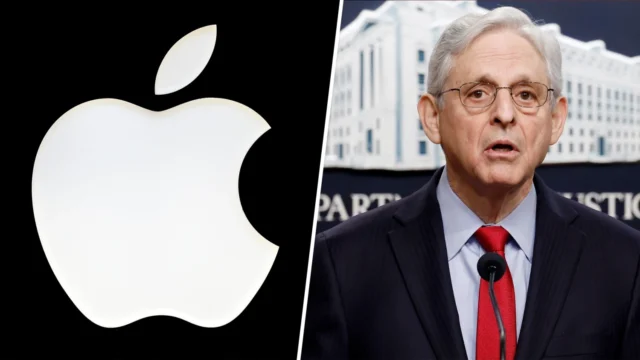
In a significant development that has captured the attention of the tech world, Apple has forcefully countered the allegations made by the U.S. Department of Justice (DOJ) in a landmark antitrust lawsuit. This case, which also involves 15 states and the District of Columbia, accuses Apple of monopolistic practices aimed at maintaining its dominance in the smartphone market, particularly through its control over the iPhone ecosystem.
Key Highlights:
- The DOJ’s Accusations: The lawsuit alleges that Apple has engaged in anti-competitive behavior by locking iPhone users into its ecosystem and limiting the capabilities of competitors. The complaint outlines concerns in several areas, including “super” apps, messaging apps, cloud streaming gaming apps, digital wallets, and smartwatch cross-platform compatibility.
- Apple’s Defense: Apple has vehemently denied these accusations, arguing that the lawsuit misconstrues the company’s competitive practices and threatens the principles that differentiate Apple products in a highly competitive market. Apple asserts that the case could undermine its ability to innovate and deliver the integrated technology experiences that customers expect.
- Industry and Regulatory Backdrop: This legal battle is part of a broader scrutiny of Big Tech companies by regulatory bodies worldwide. Apple’s clash with the DOJ comes amidst other high-profile antitrust cases against technology giants and follows significant antitrust actions against Apple outside the U.S.
The DOJ’s Claims Against Apple:
- “Super” Apps and Messaging: The DOJ criticizes Apple’s approach to apps that offer multiple functions within a single platform and the company’s messaging ecosystem, alleging these practices are designed to keep users within the iPhone fold.
- Gaming and Payments: The lawsuit also targets Apple’s restrictions on cloud-based gaming services and its control over near-field communication (NFC) payments through Apple Pay, suggesting these practices limit competition and innovation.
Apple’s Counterarguments:
- Apple argues that the DOJ’s case is built on a selective interpretation of the market dynamics and that its practices are essential for maintaining the quality, security, and privacy standards that customers expect from Apple products.
- The company emphasizes that the lawsuit, if successful, would set a dangerous precedent, potentially allowing the government to dictate how technology companies design and secure their products.
Industry Response and Future Implications:
- The tech industry and regulatory watchers are closely observing the case, noting its potential to reshape the competitive landscape in the digital and mobile technology sectors.
- The Coalition for App Fairness, comprising companies like Epic Games and Spotify, has expressed strong support for the DOJ’s action, highlighting ongoing concerns about Apple’s App Store policies.
This case is poised to be a protracted legal battle, with wide-ranging implications for the tech industry, regulatory practices, and consumer choices. As Apple stands firm in its defense, the outcome of this lawsuit could herald significant changes in how tech companies operate and compete in the global marketplace.










